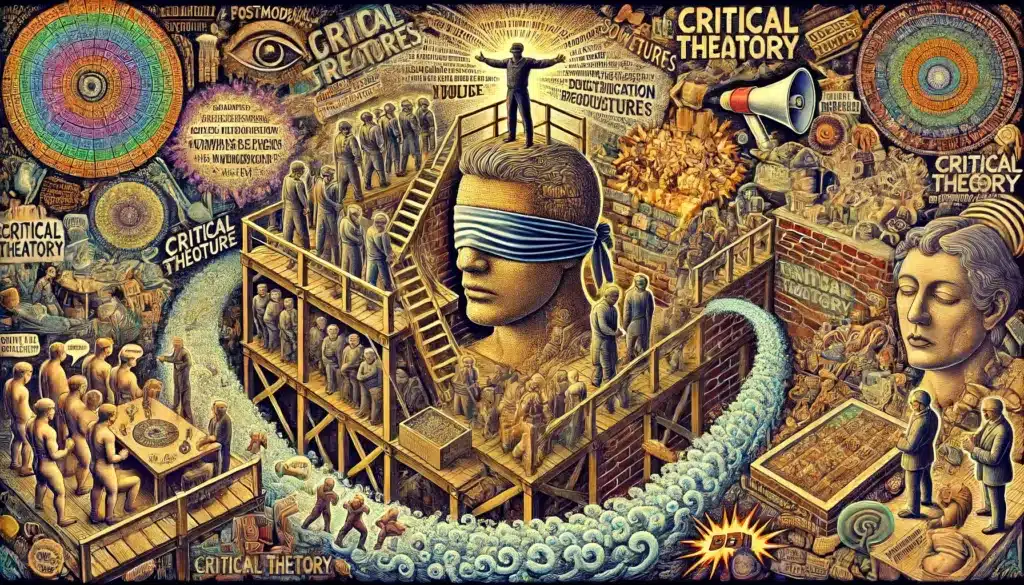Managerial Dominance: When the Suits Took Over the System
The Capitalists have lost control of Capitalism.
Let’s start with a basic idea: in capitalism, you’d think the capitalists—the ones with the money—call the shots. That’s how it was supposed to work, right? You invest, you risk, you earn, you decide. But look around today, and it’s not the people with skin in the game making the real decisions. It’s the managers. Not owners. Not visionaries. Just the career suits, hopping from one boardroom to the next.
We live in a system now best described as managerial capitalism—a version of capitalism where managers run the show, not the capitalists. And these managers? They’re everywhere. In government. In corporations. In the military. All supposedly separate spheres. But in practice? They blur into one another like a puddle of spilt coffee on a polished boardroom table.

1. The Public Managers – The Swamp in a Suit
Start with the public sector. Bureaucrats. Civil servants. Technocrats. Call them what you like, but they’re not your elected representatives. They’re the ones who stay when the politicians go. Ministers rotate, but these public managers remain. They know the ropes. They know how to stall reforms, redirect budgets, and bury accountability under ten layers of “procedure.”
They present themselves as neutral, impartial, just “doing their job.” But they’re not passive administrators. They shape policy. They nudge. They decide where money flows. And guess what? They serve their own ecosystem—jobs for their mates, contracts for familiar consultants, and golden pensions for themselves.
You don’t vote for them. You don’t sack them. But they hold the levers of power, and you’re told it’s all just “the system working.”
2. The Corporate Managers – The Untouchables
Then there’s the private sector. Corporations used to be owned and run by the same people. Entrepreneurs. Founders. Builders. Now? We’ve got a caste of professional managers who flit from company to company, parachuting into leadership positions with fat contracts and even fatter severance deals.
They don’t build. They manage. They manage you, your data, your expectations. They manage shareholders with buzzwords. They manage crises with PR. They manage responsibility by outsourcing it. And if things go wrong? They slide out the back door with a golden parachute and a LinkedIn post about “new beginnings.”
Accountability? Forget it. Thanks to the gospel of stakeholder capitalism, they don’t answer to shareholders anymore—they answer to everyone. Which means, in practice, they answer to no one. managerial dominance
3. The Military and the Managers in Uniform
You might think the military’s a different beast. Chain of command. Duty. Honour. But look closer. Generals don’t just retire quietly anymore. They go straight to defence boards, consulting firms, think tanks, or become advisers in government. Some swap fatigues for pinstripes and start talking about “leadership principles” at corporate retreats.
These generals and senior officers become general managers. And while they claim to serve the nation, what they often protect is the budget, the contractors, and their influence.
And once they enter the corporate world, they’re not exactly shy about using their old connections. “Public-private partnership” is the polite phrase. “Old boys’ network” is the reality.
The Lines Are Blurred for a Reason
One of the most striking things about this managerial class is how easily they move between these three spheres. A corporate CEO becomes a government adviser. A senior civil servant joins the board of a private bank. A general gets hired by a weapons manufacturer.
It’s a merry-go-round. And at each turn, they get richer, more powerful, and more insulated from the consequences of their decisions.
And don’t be fooled: they look different, wear different badges, speak different jargon—but they serve the same interest. Their own. managerial dominance.
Stakeholder Capitalism: A Cloak of Virtue
Stakeholder capitalism was supposed to be the enlightened evolution of capitalism. Not just profits for shareholders, but benefits for all—employees, communities, the environment. Sounds lovely, doesn’t it?
But it’s a smokescreen.
It gives managers an excuse to evade responsibility. If you’re accountable to everyone, then no one can really hold you to account. And in that moral fog, the managers thrive. They tick boxes. Issue statements. Launch initiatives. They promise “diversity,” “sustainability,” “purpose.” But when you follow the money, it all still flows in the same direction—up. managerial dominance
So Who’s in Control?
Not the voters. Not the shareholders. Not even the old-school capitalists. It’s the managers now. And they don’t really own anything. They don’t risk much. But they control everything—budgets, decisions, narratives.
The tragedy? They’ve turned both capitalism and democracy into performance art. The shareholder votes, the election speeches, the public consultations—they still happen. But they don’t mean much. The real decisions are made behind closed doors by people who will never face the consequences.
A Comfortable Club
This managerial elite exists across borders too. They go to the same schools, attend the same conferences, share the same mindset. Whether they’re in Washington, Brussels, London, or Davos, they speak the same language of strategy, policy, governance.
They talk endlessly about transparency while drafting deals no one’s allowed to read. They preach sustainability while cashing bonuses tied to quarterly profits. They promise resilience while firing workers and outsourcing risk.
What Can Be Done?
Honestly? Not much, unless we stop pretending this is normal.
We need to stop mistaking process for accountability. Stop letting abstract ideas like “stakeholder capitalism” distract us from the fact that no one is held responsible anymore. No one gets fired for failure. No one gives back the bonus when things go wrong.
Start asking: Who benefits? Who decides? Who walks away richer?
Because unless we start pulling back the curtain, we’ll keep handing power to people who never earned it—and never risk losing it.
And the rest of us? We’ll just keep managing to get by. managerial dominance


